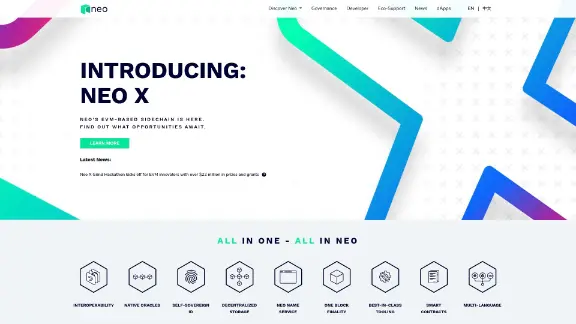Gas (GAS)
Gas is a cryptocurrency created by the Neo Foundation, designed to complement Neo, the other coin developed by the organization. Gas plays a crucial role in the Neo ecosystem, serving as a utility token used to cover processing fees for transactions conducted on the Neo blockchain. This article will explore the various facets of Gas, its relationship with Neo, and how it functions within the broader framework of blockchain technology.
The Neo blockchain
Overview of Neo

| Ticker | GAS |
| Category | Infrastructure |
| Website | https://neo.org/ |
| @neo_blockchain | |
| https://www.reddit.com/r/NEO | |
| Contract Addresses | |
|---|---|
| neo | 60...e7 Copied! Copied! |
Neo is a blockchain platform and cryptocurrency that aims to digitize assets and automate the management of digital assets through smart contracts. It was launched by the Neo Foundation, an organization dedicated to the development and promotion of blockchain technology. Neo's native cryptocurrency, also called Neo, is central to the platform's operations and is integral to the creation and management of smart contracts.
Proof of Stake algorithm
Neo utilizes a consensus mechanism known as Proof of Stake (PoS), which differs significantly from the more commonly known Proof of Work (PoW) algorithm. In a PoS system, the ability to process transactions and create new blocks is determined by the number of tokens held by a participant, rather than the computational power they possess. This approach is energy-efficient and encourages token holders to participate in the network by staking their tokens, thereby contributing to the network's security and stability.
Functionality of Gas
Role as a utility token
Gas is utilized within the Neo ecosystem to pay for transaction fees and the execution of smart contracts. This mechanism is similar to how Ether is used to pay for "gas" on the Ethereum network. By using Gas to cover these fees, Neo ensures that the blockchain operates smoothly and efficiently, with users contributing to the operational costs of the network through their transactions.
Distribution to Neo holders
Gas is distributed to Neo holders as a form of compensation for their participation in the network. This distribution is an aspect of the PoS consensus mechanism, where token holders receive a certain amount of Gas each month. This model provides an incentive for users to hold Neo tokens and participate in the network, as they earn Gas in return for their stake.
Algorithmic design
At the inception of the Neo network, approximately one Gas was distributed daily for every 1,000 Neo held. However, the distribution algorithm is designed to decrease over time, a feature intended to maintain the cryptocurrency's value and sustainability. As the distribution decreases, the value of Gas is expected to adjust accordingly, ensuring the continued viability of the network.
Relationship between Gas and Neo
Interdependent dynamics
Gas and Neo have a symbiotic relationship, with Gas serving as the fuel that powers the Neo blockchain. This interdependence is essential for the functioning of the Neo ecosystem, as Gas enables transactions and smart contract executions, while Neo provides the foundational infrastructure. Together, they form a cohesive unit that facilitates the seamless operation of blockchain-based applications and services.
The path of growth
The growth and development of Gas are closely linked to the evolution of Neo. As Neo continues to expand its capabilities and user base, Gas too experiences growth, reflecting the increasing demands of the network. This relationship underscores the importance of both cryptocurrencies in the broader context of blockchain technology, as they work in tandem to drive innovation and adoption.
Conclusion
Gas is a vital component of the Neo ecosystem, functioning as a utility token that facilitates transactions and smart contract executions on the Neo blockchain. Through its Proof of Stake consensus mechanism, Neo incentivizes token holders by distributing Gas, thereby encouraging participation and network security. The intertwined nature of Gas and Neo highlights their importance in the realm of blockchain technology, as they collectively enable the efficient and sustainable operation of the Neo platform. For more information, you can explore their official website at neo.org.
